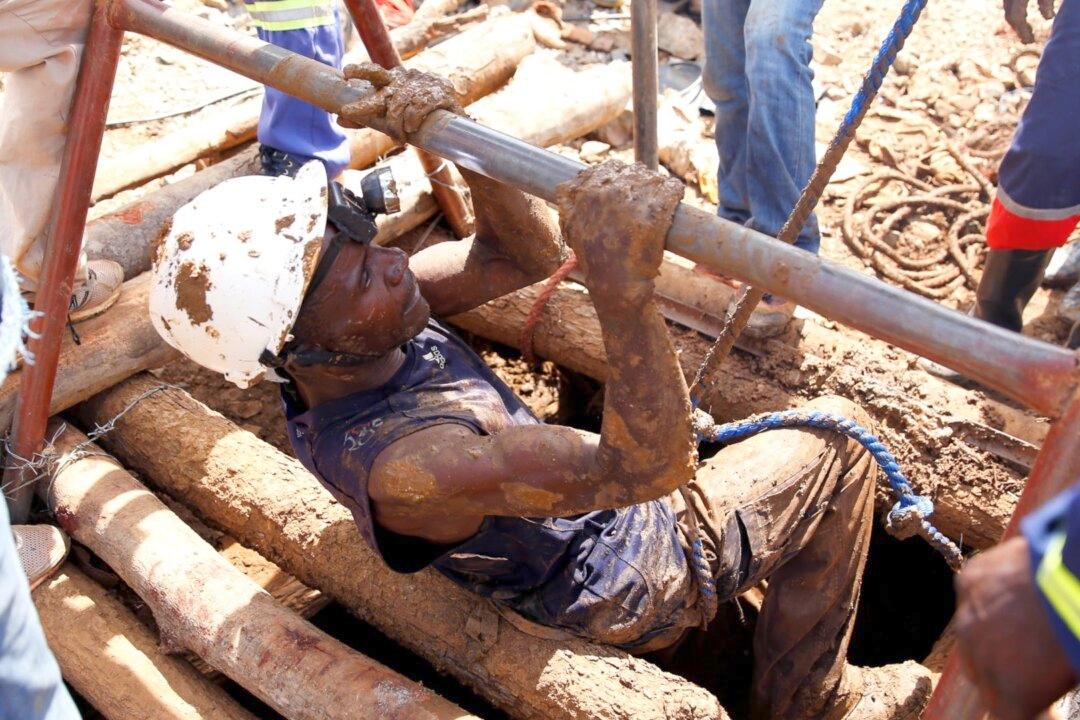BATTLEFIELDS, Zimbabwe—Zimbabwean rescuers pulled the bodies of at least 22 illegal gold miners out of shafts west of Harare that were flooded earlier in the week, and rescued nine more alive, officials and witnesses said on Saturday, Feb. 16.
The accident involving at least 60 illegal gold miners in Battlefields, 175 km (109 miles) west of the capital, happened on Tuesday night and has shone a light on the risks run by illegal gold miners, who last year contributed a large part of Zimbabwe’s record 33 ton bullion output.





